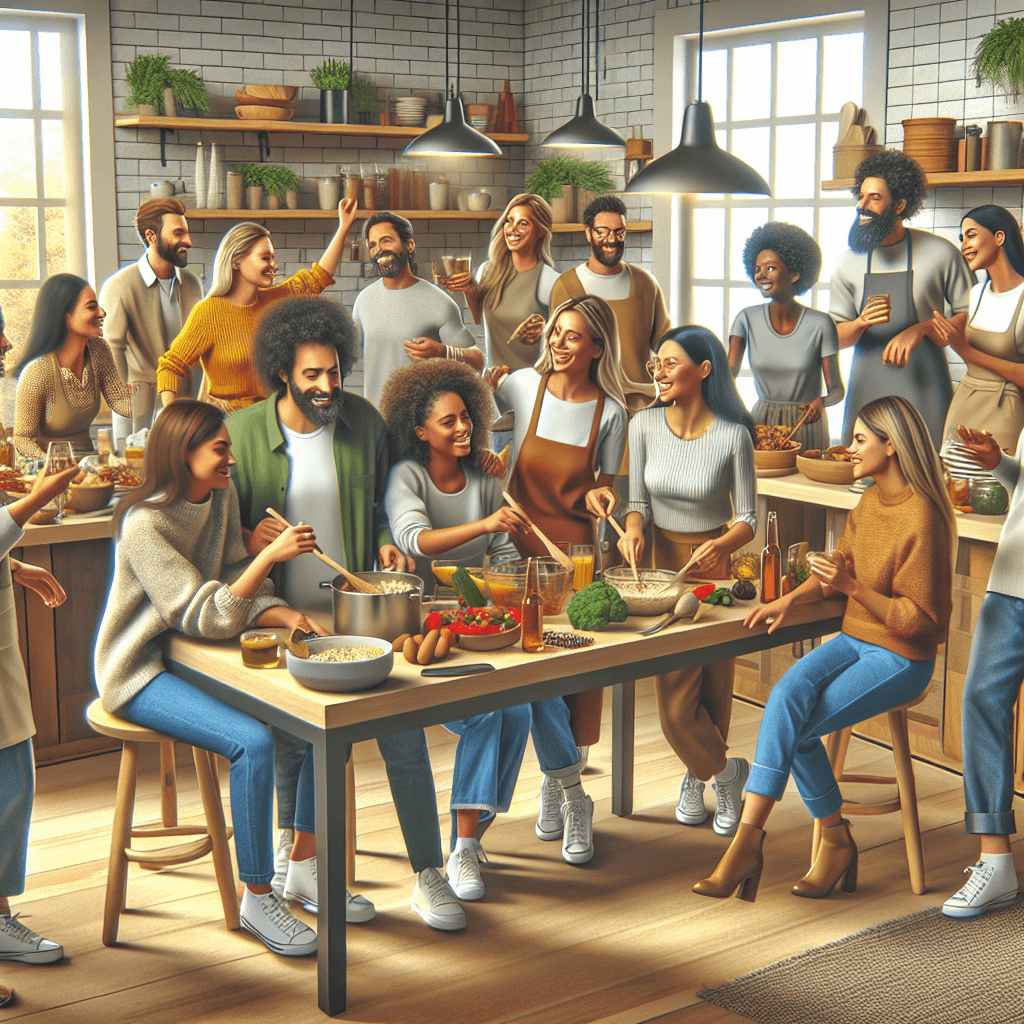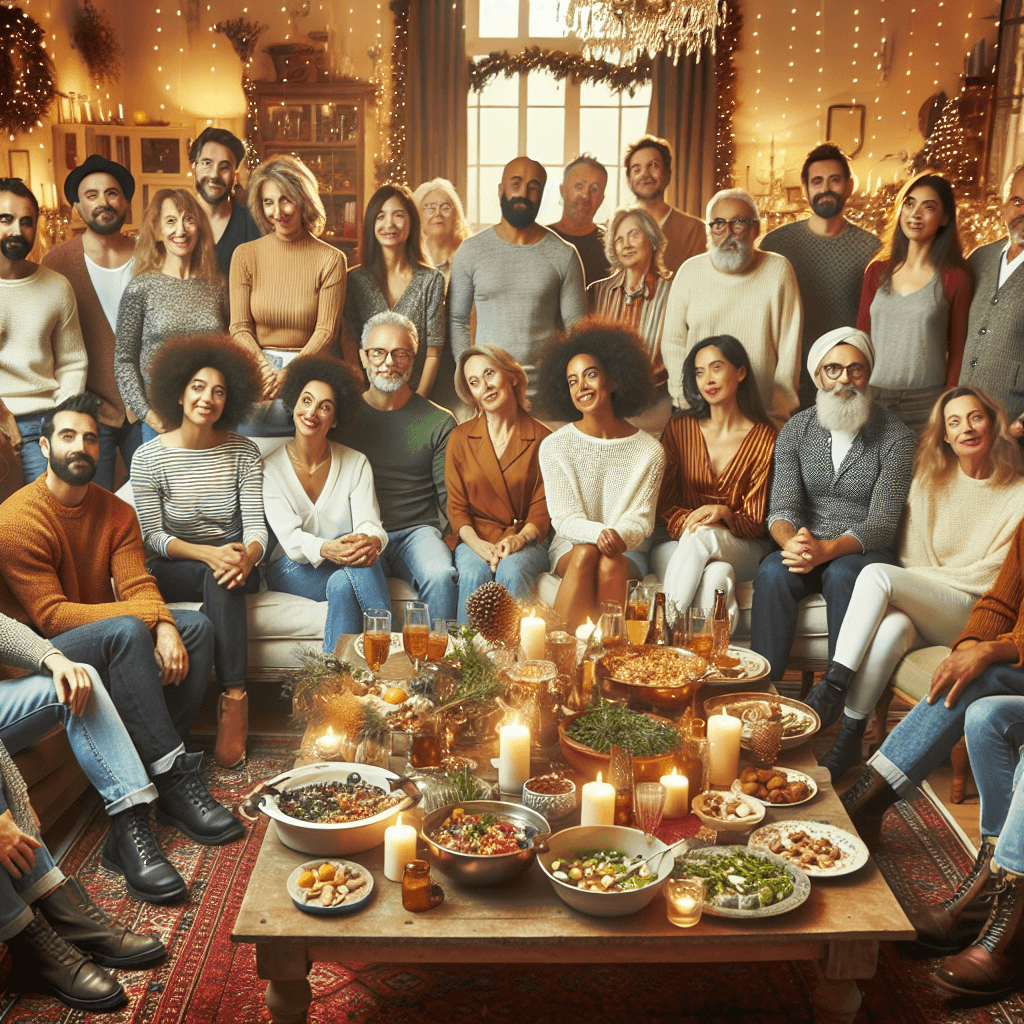
Separated from Family? Creating a 'Chosen Family Christmas' for Those Spending the Holidays Solo
Category: healthPublished: 11/05/2025Views: 97Likes: 79
Facing the Holidays Alone and Creating New Traditions
In 2022, I found myself confronting my first Christmas without the comfort of my long-term partner by my side. After a breakup and two years away from my own family, the thought of spending the day on my own felt overwhelming and frightening. The idea of sitting in silence with no one to share the moments with, while the world around me celebrated with their families, was daunting.
Despite knowing that family gatherings often come with their own challenges and can even be emotionally draining, the fear of isolation was very real. I wondered, surely I wasn’t the only person dreading the holidays because they wouldn’t be spending it with their biological family? This led to the creation of what I like to call 'Waifs and Strays Christmas' – a comforting space for those who, for whatever reason, find themselves apart from their family during this traditionally family-focused season.
What is Waifs and Strays Christmas and Who Is It For?
'Waifs and Strays Christmas' is all about bringing together people who feel disconnected from their biological families. This could be because of estrangement, physical distance, or simply the desire to celebrate the holidays differently. Whether you've fallen out with your relatives, live far away from home, or just want to try something new, this inclusive gathering is for you.
The celebration itself might look very different from person to person. Some prefer to embrace the festive spirit with Christmas decorations, mulled wine, and a traditional dinner. Others might choose to avoid the holiday trappings altogether, focusing instead on honest conversations about the complexities of family relationships or simply enjoying each other's company without the pressure of convention.
At its heart, the event is about connection. It brings together a mix of people—those who find Christmas tough for emotional reasons and those curious about creating new memories outside the norm. It’s about cultivating kindness, mutual support, and a sense of belonging during what can often be a lonely time.

Understanding Family Estrangement and Its Impact at Christmas
One of the main reasons many find themselves alone during the holidays is family estrangement, which is more common than many realize. According to research from the charity StandAlone, at least 20% of people in the UK have either distanced themselves from a family member or have someone in their family who has done so, meaning approximately one in five families experience some level of estrangement.
Additionally, over a quarter of people know someone—a friend, colleague, or acquaintance—who no longer speaks to their family. Christmas can exacerbate feelings of isolation for those in this situation since the season is widely portrayed as a time to be with loved ones. For some, this means painful reminders of past hardships, especially if previous holiday experiences involved toxic or abusive family dynamics.
There’s often an added emotional weight around special occasions, where those who initiate estrangement might grapple with guilt or second-guessing. It’s normal to wonder whether they should have pushed through conflicts or made amends, but these questions tend to intensify when faced with the reflective nature of the holiday season.
Redefining Holiday Traditions Beyond Blood Ties
Estrangement isn’t the sole reason people seek alternative ways to celebrate Christmas. Even those with good family relationships sometimes crave a break from tradition. When I first announced my plans for my inaugural Waifs and Strays Christmas, many of my friends who genuinely enjoyed time with their families expressed envy. They wished they could spend the holidays on their own terms—perhaps with a romantic partner, close friends, or even solo, indulging in relaxation or a special treat like a stay at a nice hotel.
However, many feel a strong social obligation to spend Christmas with their family, which can prevent them from pursuing the celebrations they truly want. While loyalty to loved ones is a beautiful feeling and undertaking the occasional sacrifice for their happiness is admirable, there’s also great value in embracing a holiday mindset that celebrates chosen families and meaningful connections, regardless of biology.
In her book, writer and trainee psychotherapist Sophie K Rosa encourages us to move beyond the traditional nuclear family idea and consider what it truly means to nurture relationships that encourage everyone’s wellbeing and growth. These connections might not always be with blood relatives but often stem from intentional, caring communities we build around us.

Finding Joy and Healing by Creating New Holiday Communities
My experience with Waifs and Strays Christmas in 2022 turned out to be far from lonely. Instead, it was a time filled with healing, fun, and genuine connection. Together, we enjoyed festive drinks like Snowballs, took walks in the fresh air, went to the movies, and shared cooking experiences. The group was wonderfully diverse, including younger adults in their 20s and 30s, and older individuals in their 50s and beyond.
We shared stories about family bonds—those present, strained, or absent—and brainstormed new traditions to adopt while shedding old ones that no longer served us. Our conversations ranged from deeply personal to lighthearted and playful, creating a lovely balance.
On Christmas Day itself, I joined a group determined to celebrate with chosen family rather than biological relatives. We cooked meals together, watched films, and took walks, turning what I had previously feared would be an isolating day into one brimming with joy and companionship. This experience deeply shifted my perspective on the holiday season.
This year, my Waifs and Strays events are once again bustling, with plans to watch Die Hard, enjoy cocktails, share meals, and take long strolls with people I've met just recently or only a handful of times. I will be spending Christmas Day with my ex-partner, who is now a treasured friend, along with his family. This has surprised many, but to me it symbolizes the fluidity of relationships and the power of defining family on your own terms rather than following rigid expectations.
Embracing the idea that family can be chosen opens up opportunities for redefining holidays into experiences full of genuine warmth, respect, and love.
Stay Updated with Women's Spot Insights
Get the latest women's health tips, wellness advice, and expert insights delivered directly to your inbox.
We respect your privacy. Unsubscribe at any time.

Reinventing What Family Means During the Holidays
There’s no denying that for those estranged from biological family—or separated by distance or difficulty—the holiday season can be a source of sadness. Society often perpetuates the idea that we should long for and yearn to reunite with family during this time, even when those relationships bring pain or trauma.
Yet, there’s an empowering and uplifting aspect to taking the holiday season as an opportunity to do something different, to build connections with both familiar faces and new acquaintances. It’s a chance to step away from conventional expectations and embrace what feels authentic and nourishing to you.
Thinking beyond traditional family structures allows you to celebrate the people who matter deeply in your life—those you choose to nurture and cherish, regardless of genetic ties. Since sharing my journey, many people have reached out to connect over spending Christmas alone, helping build a larger community around this new tradition.
It’s my hope that Waifs and Strays Christmas evolves into a widespread celebration that welcomes anyone whose life or family dynamic doesn’t fit the typical holiday mold. Everyone deserves to experience joy, connection, and the comfort of community during the festive season, no matter their background or situation.
Comments
No comments yet. Be the first to share your thoughts!